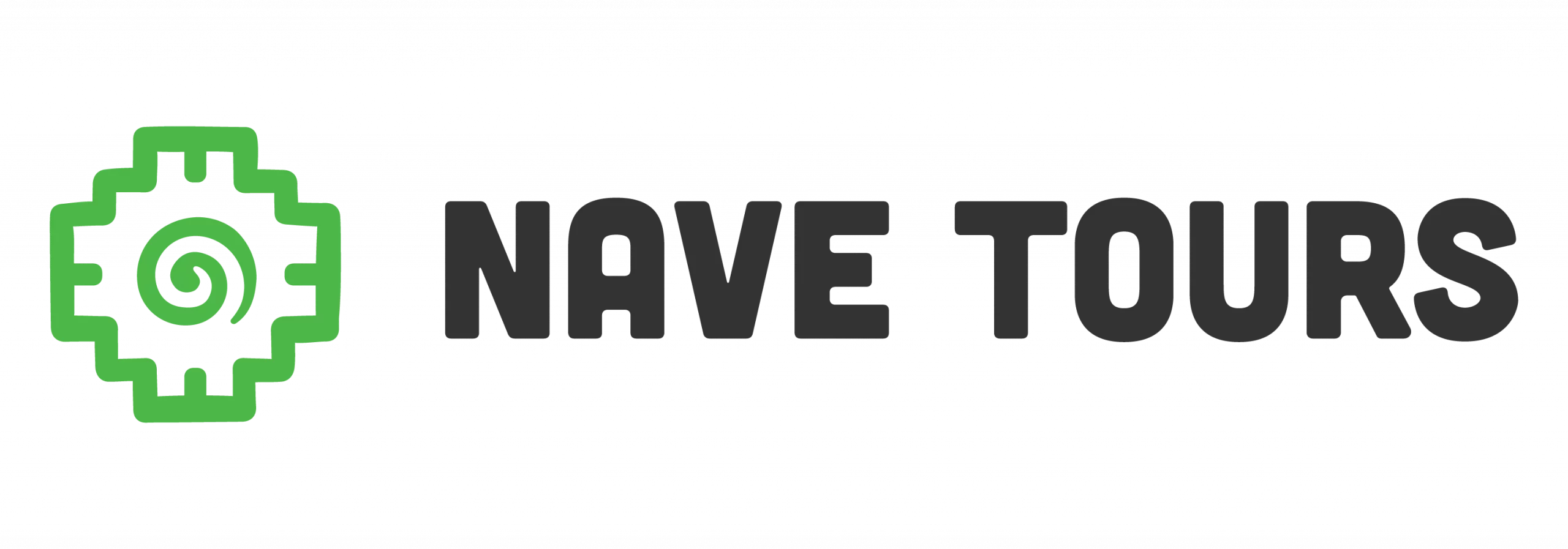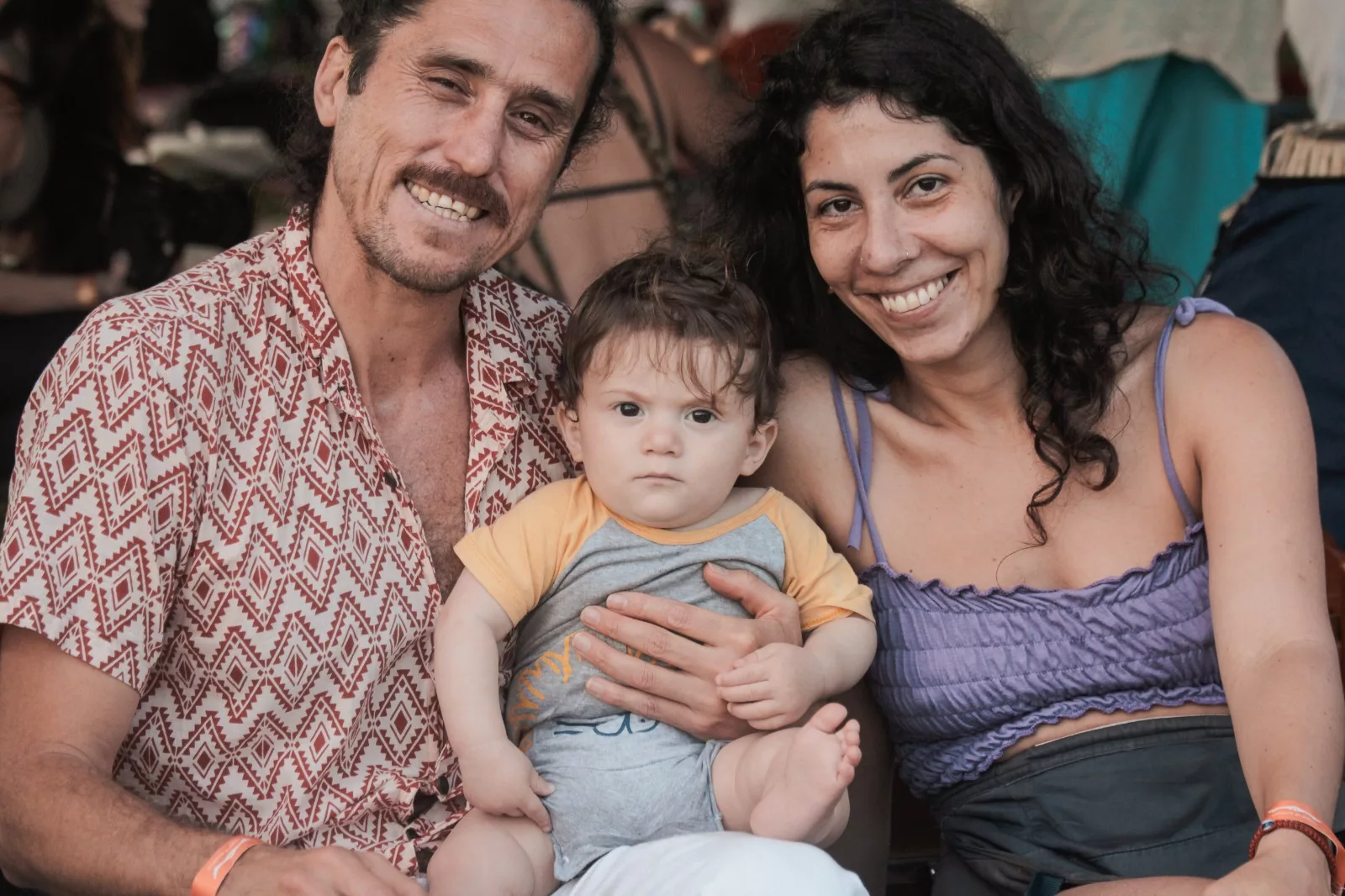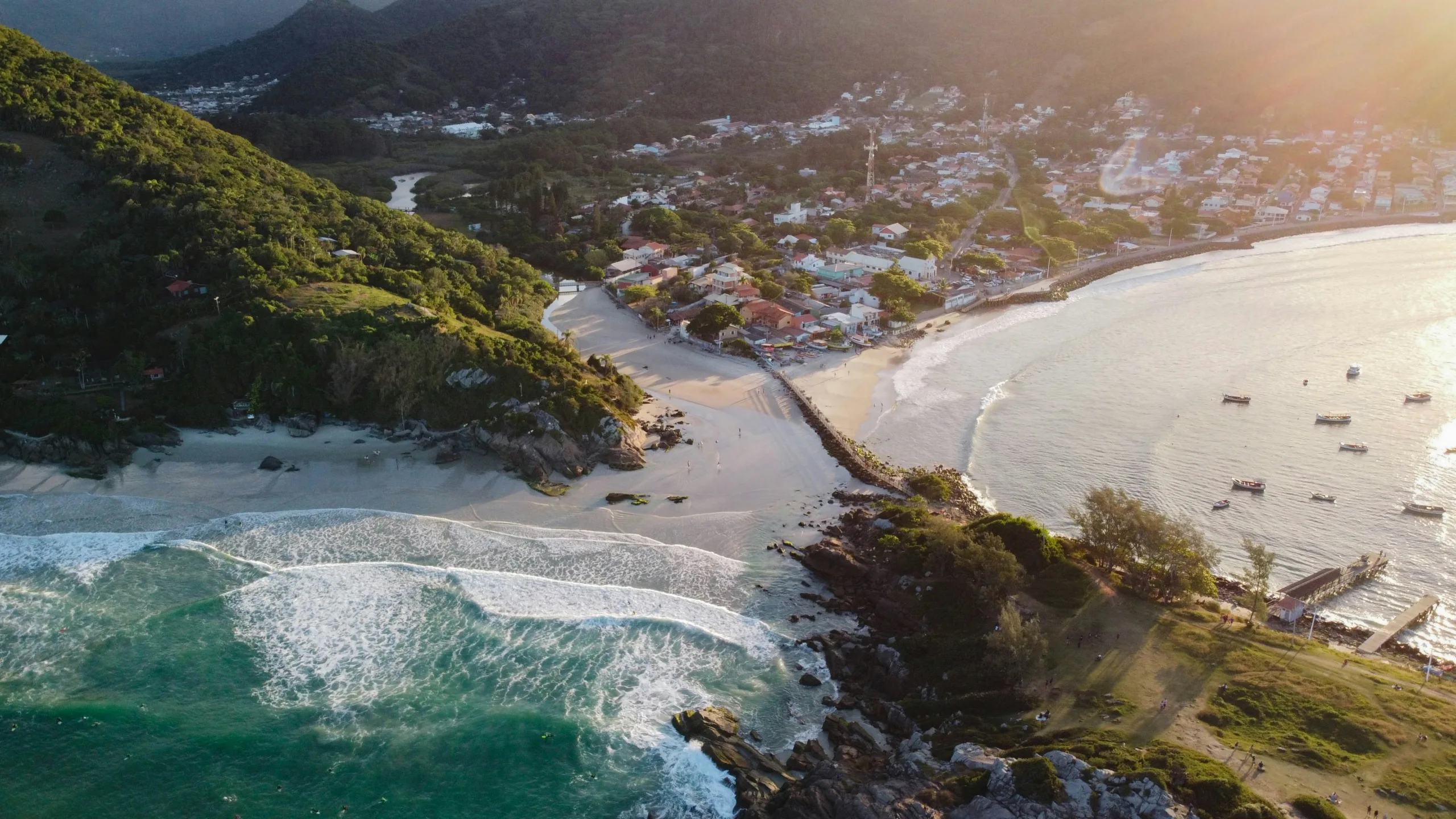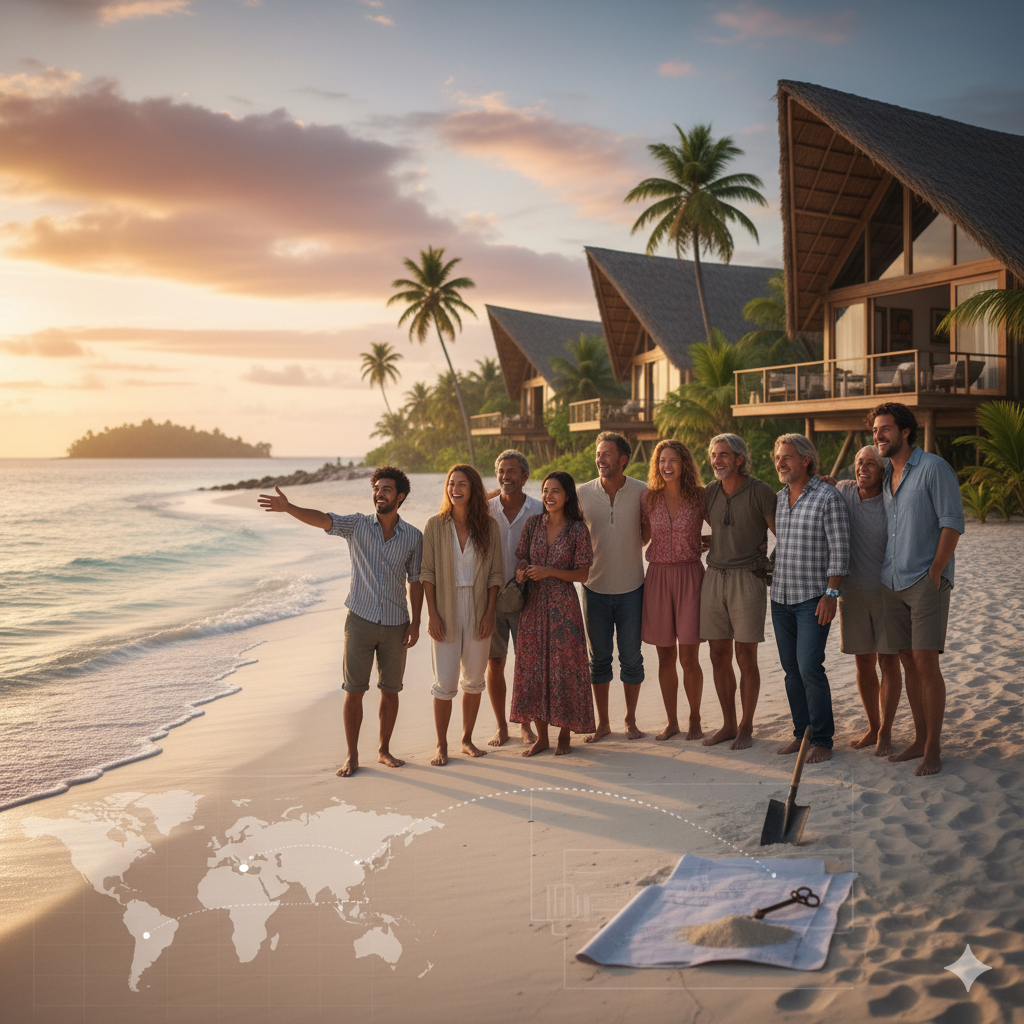Leaving my country and starting from scratch 13 years ago wasn’t easy, but the risk brought the greatest reward: the birth of my career as an entrepreneur and investor in Brazil. I wanted to create this “Self-Interview” format to share my journey—not just the successes, but also the lessons learned while navigating the Brazilian market. If you’re thinking about starting a business or investing here, I hope my experience can serve as a roadmap. Let’s start with the key questions of my journey!
PHASE 1: The Arrival and the Human Factor (Personal Motivation)
Question: Beyond the economy, what was the personal or emotional drive that made you leave your country and choose Brazil 13 years ago?
Answer: My drive wasn’t economic; it was existential. It all started in Chile when I was 19. A very serious accident brought me too close to death and made me radically question the point of a life dedicated only to planning the future. Why postpone happiness?
That experience was the trigger for me to drop out of university and, in 2001, embark on a four-year backpacking trip through Latin America. But there was one place that stole my soul from the very first moment: Brazil. I was captivated by the intense green of its forests, the genuine smile of its people, the richness of its music, and, above all, its deep and complex spirituality. I always felt I wanted to put down roots here. In 2013, after years working in ecotourism in Chile, I decided it was time to stop dreaming and come try my luck in this land that had called me for so long.
Question: What was the initial cultural and social adaptation like? Do you remember a moment or anecdote where the “culture shock” was felt most strongly?
Answer: It’s crucial to clarify that Brazil is a continental country, and my experience is deeply colored by Bahian culture, specifically life on the island of Morro de São Paulo. This place is a microcosm: it has the strong African heritage of Bahia, but also a vibrant mix of immigrants from many other places.
That said, the first major culture shock with the locals was the label. At the time, any fair-skinned person with a foreign accent was called ‘gringo’. This bothered me deeply; in the rest of Latin America, there’s a strong sense of brotherhood, and being treated like a distant ‘foreigner’ felt unjust.
Another cultural challenge was the lack of seriousness about schedules. Informality regarding time commitments was the norm. However, over time, this local weakness became my great entrepreneurial strength, as it allowed me to stand out as an extremely serious and reliable professional and business owner.
PHASE 2: The Need to Build a Business (Forced Economic Development)
The true anchor that made me abandon the backpacking life and seek stability was fatherhood. Although the relationship with my daughter’s mother was brief, the responsibility of being a present father in this land hit me hard. It was no longer just about me and an adventure; it was about ensuring my daughter’s well-being. That was the unmistakable sign that I needed to stop surviving and start building wealth and a stable economy in Brazil. That’s where the necessity to start a business became imperative and radical.
Question: Since your initial motivation wasn’t economic, at what point did you realize you had to “create” your own economy to subsist?
Answer: The turning point was fatherhood. My main goal wasn’t just money, but quality time. I needed a model that would allow me to support my daughter and have the physical availability to be with her.
My first economic project was to leverage my experience. I created an online travel agency structure specializing in my strong area: Santiago, Chile. This was very innovative for the time. By operating remotely from Brazil, I generated income in a stronger currency and maintained the schedule flexibility I needed.
It’s important to note that this online agency started slowly. Therefore, during this first phase, I had to keep up a constant hustle. I continued traveling frequently to Chile and even to other cities around the world for in-person work as a tour leader and as an experiential trainer (a form of experiential coaching). This not only secured cash flow but also forced me to diversify my skills in an international context, which would be invaluable later on.
Question: What skill or lesson from your immigrant experience proved crucial for your initial success as an entrepreneur in Brazil?
Answer: The most important lesson being an immigrant gave me was understanding that my supposed disadvantages were, in fact, my greatest assets.
Specifically, my fluency in English and my vast experience in international tourism (including working with five-star hotels in Santiago, Chile) opened a business door that was completely unexplored in Bahia at the time. I saw that the local market wasn’t prepared to serve the high-value, English-speaking tourist; it was an uncontested niche.
My strategy was simple and effective: use my international credentials to create a local agency model completely focused on the foreign client. I quickly established strategic alliances with European agencies, successfully placing our destination on their offer lists.
Question: How did you handle the legal and bureaucratic aspects when formalizing your business as a foreigner? What practical advice would you give about documentation (CPF, visa, etc.)?
Answer: Paradoxically, the legal and bureaucratic part was much easier than many people imagine. This is due to two key factors:
- Mercosur Advantage: As a Chilean citizen, I benefited from the Mercosur agreements. This makes obtaining temporary, and later permanent, residency a much more direct process.
- Fatherhood as a Legal Anchor: Being the father of a Brazilian citizen streamlined my legal status to the maximum, facilitating my residency and the right to start economic activities as an entrepreneur.
In summary, Brazil is an extremely convenient country for anyone from Mercosur who wishes to settle and start a business.
PHASE 3: The Leap to Investor (Growth and Multiplication)
Question: What was the driving force that pushed you to move from just “starting businesses” to “investing and diversifying” your wealth in the Brazilian market?
Answer: The engine for diversification was a mix of personal dream and necessity. On one hand, as my daughter grew, my dream of buying land and building a house became a priority.
However, what made me take a massive leap in wealth was the Pandemic. When the quarantine hit, my main source of income—international tourism—came to a radical halt. In that moment of crisis, I saw another great opportunity: internal migration. Many people wanted to leave the big cities.
My experience led me to realize that I could help these people find land and start a new life here. This is how the eco-neighborhood projects of Ecomorro.com on Tinharé Island were born. The project quickly took on a deeply ecological and preservation-focused character.
Within a few months, I had already helped create a complete Eco-neighborhood. This allowed me to sell lots and immediately reinvest that money into more land, always focusing on conservation. Today, others actively seek me out to develop their own real estate projects, following the Ecomorro model.
Question: As an investor, what advantages or disadvantages does the Brazilian market have compared to others, and what lesson did you learn about local volatility?
Answer: The biggest advantage for an immigrant is that Brazil is a pluricultural, very open, and friendly country to foreigners, which greatly facilitates integration. From a business perspective, the strength of the internal economy leaves vast space for those with an international vision.
Regarding disadvantages, the lack of formality and seriousness in some processes is a real challenge, but it is regional. This disadvantage, ironically, turns into an opportunity for a foreigner: if you position yourself as a serious and reliable professional, you immediately stand out.
Question: For someone who wants to follow your path: what fundamental advice on mindset and strategy would you give to an immigrant who wants to start a business and invest in Brazil today?
Answer: My advice focuses on two pillars: patience and an adaptation mindset.
First, you have to arrive as empty of expectations as possible. While a guide is good, the path in Brazil is created day by day. It is essential to be resilient and know how to adapt and seize situations, even crises. Second, humility. We must respect the way each culture approaches life. Finally, regarding investment, my biggest lesson is patience. Investments take time to bear fruit. You have to go through the process calmly and try to enjoy every day.
My Life Today: From Paradise to Paradise
While I continue to manage my businesses in Bahia, and I constantly come to visit my daughter and spend months here, I have expanded my horizons. I am currently living and creating new businesses in Florianópolis. This other island offers me incredible market opportunities, especially in the South, which has a different cultural and economic dynamic. Thus, I live from paradise to paradise, enjoying the best that the North and South of Brazil have to offer, with the freedom that only successful entrepreneurship can give you.
Conclusion:
Thirteen years later, the adventure that began with an existential decision has given me not only a family and a home in wonderful Bahia but also a career as an entrepreneur and investor that positively impacts the environment. The secret wasn’t having the perfect plan, but having the resilience to adapt and the humility to learn from the country. If my story resonates with you, I hope you dare to take that first step. The Brazilian market is full of opportunities for those who dare to seek them with vision and purpose.
What about you? What is your story or your dream of starting a business in paradise? Leave me a comment!



